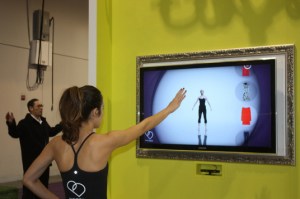VB: One of the interesting facts is that these two boxes are not so different. Sony’s box will play movies just as well as Microsoft’s will. They’ll both have services for music and TV shows and games.
Barry: The other thing is that those two companies have so many similarities and differences in where they’re coming from. Each of them, you go back 20 years, was the powerhouse in their industry — Microsoft in home computing, Sony in home video and portable audio. They had a march stolen on them in video by a lot of companies, not the least of which were Samsung and Vizio. Microsoft was pushed by Apple and Samsung and everyone else in the mobile space.
Likewise, each of those companies is coming from a place where this part of their business has been a shining light, even as other parts of the business have declined. Microsoft, you know more about their financials, but I’m sure the game sector has done really well. Sony’s game sector has done fine as compared with television and Walkman and other things. They have really nice digital Walkman products. Have you seen their tablet, their Xperia tablet? I’ve showed it to people. It weighs nothing. It’s a beautiful piece. But they’re behind the curve.
VB: Back to CES, what do you think will be interesting as far as the trends there? You already mentioned startups.
Barry: Yeah, Eureka Park is bigger. For your particular beat, that is an interesting and important place. Ultra HD, you’re going to see a lot more of that. Last year, when we were showing it, I don’t think there was anything under $20,000. We’re already talking about some under $1,000 now. Mamas, don’t let your babies get into the television business. That’s why, when people talk about Apple getting into the TV hardware business—We used to talk about it being the place where computer companies went to die. Epson, years ago, showed TVs at CES. There’s just no margin in it now. If anybody could do it, Apple could do it. They could just sell it in their stores, not sell it in Best Buy…
VB: … and sell it for twice what everybody else charges.
Barry: They could. For a while. But they have to buy it from somebody. They’re going to buy it from LG or Samsung or somebody like that, and LG or Samsung will be selling that same product, basically, for half as much money. It’s tough. The other part of it is, if they could make a TV changing channels and doing all this stuff like the apps on an iPad, that would be wonderful. Why can’t they do that? Because they have to deal with all of those service providers and the content providers.
Anyhow, back to trends. All of the lifestyle stuff, the “living in digital times.” Seniors, the Silvers Summit. The mommy tech. The health and fitness stuff. Wearables. Everybody focuses on two things. They focus on the Samsung Gear and on Google Glass. Both of those are very cool and do a lot of neat things. But the place where people are already using lots of wearable technology is the health and fitness space. The monitors and all the rest. We’re going to see a lot more of that.
Another thing is all the auto stuff. The last couple of years, it’s become a huge auto show. We used to call it the car stereo section. Now it’s a literal auto show.
VB: You’re going to get high-speed Internet in your car now.
Barry: Yeah. That brings up all the safety issues. CEA is trying to take a lead on that. We have the whole thing with AT&T, the “It Can Wait” campaign on texting while driving. That really is a terrible problem. Then we have all the mobile stuff, especially Bluetooth. You’re going to see Bluetooth speakers out the wazoo.
3D printing is going to be big. The one that MakerBot was showing last year was a $1,500, microwave-oven-sized kind of thing. Prices are coming down quickly on those. Certainly for commercial applications – any designer or architecture or artist will be using those things.
VB: Intel has gotten into the scene with their do it yourself robots now. This whole DIY hardware movement seems like it’s getting legs. The Maker Faires are getting to be very popular. What do you guys think of that? Do you see any sign of that among CES exhibitors?
Barry: The sign of it would be the different 3D printers and such. That could be the kind of advance guard. There will always be a DIY aspect to almost any business, but at the same time, it’ll be a niche — and I’m not sure how big a niche – in a much bigger market of people who prefer to have someone else do it for them. That’s true of everything from gardening to stereos, going back to Heathkits.


